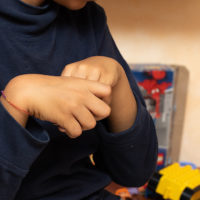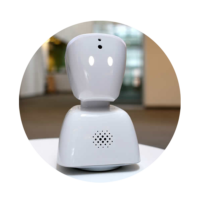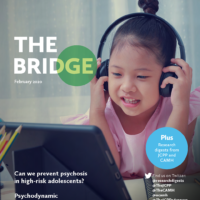Search results
-

Can ‘FRIENDS’ in school help prevent anxiety?
Researchers in Norway have assessed whether the FRIENDS programme is best used as a prevention measure or as a treatment approach for anxiety in school-aged children.
Read more -

Obsessive compulsive disorder symptoms predict anxiety, and vice versa
Researchers in London have studied the relationship between anxiety sensitivity (the tendency to fear anxiety symptoms) and obsessive–compulsive disorder (OCD) symptoms.
Read more -

Is parental educational status to blame for academic problems in children?
Children of parents with low educational attainment have up to three-fold higher risk of developing a psychiatric disorder such as attention deficit/hyperactivity disorder (ADHD) and depression than children of parents with high educational attainment.
Read more -

Early adoption protects against internalizing, but not externalizing, problems
Researchers in the UK have used data from two groups of early-adopted individuals (from the 1958 and 1970 British birth cohorts) to comprehensively describe outcomes up to mid-life.
Read more -

Can adult ASD outcomes be predicted by clinical measures made during childhood?
A new study has retrospectively profiled the adult outcomes of 123 children with autism spectrum disorder (ASD) to determine whether certain outcomes, or “types”, can be predicted from typical clinical measures made during childhood.
Read more -

How can a robot help your mental health?
Cath Kitchen, Head Teacher and Project Manager for the DoE AV1 project, and Zoe Johnson ‘Zobot’ explain how this innovative device is helping young people with long term physical and mental health issues to ‘virtually’ attend school.
Read more -

How can a robot help your mental health? Meet ‘Zobot’ and see
Cath Kitchen, Head Teacher and Project Manager for the DoE AV1 project, and Zoe Johnson ‘Zobot’ explain how this innovative device is helping young people with long term physical and mental health issues to ‘virtually’ attend school.
Read more -

Developmental Language Disorder in Children and Young People
Developmental language disorder (DLD) is diagnosed when a child’s language skills are persistently below the level expected for the child’s age. In DLD, language deficits occur in the absence of a known biomedical condition, such as autism spectrum disorder or Down syndrome, and interfere with the child’s ability to communicate effectively with other people. Expressive language is characterised by non-specific words and short simple sentences to express meanings beyond the age at which children may be using more complex language.
Read more -

February 2021
This issue of The Bridge includes several articles which focus on child and adolescent psychoanalytic psychotherapy. This therapy aims to help young people, their families, or their support networks to better understand each young person’s emotions, behaviour, and relationships.
Read more -

JCPP Annual Research Review 2020
Free access to the articles included in the JCPP Annual Research Review: “Something new: What’s next for child psychology and psychiatry?”, until the end of February 2020.
Read more